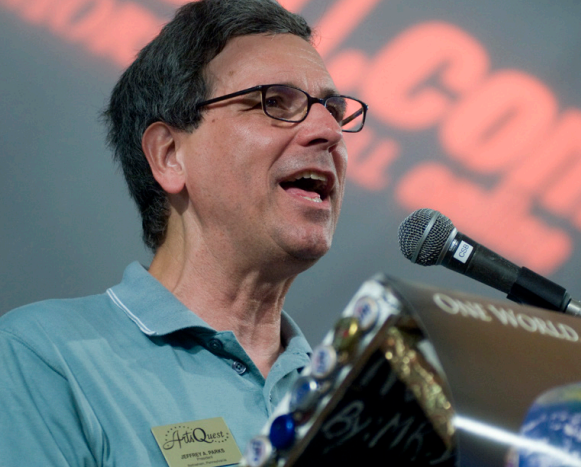Musikfest’s Founder Jeff Parks Reminisces about the Early Days

We sat down with Jeff Parks, the founder of Musikfest, to get his take on celebrating 40 years of the festival, how it all started and some of his favorite memories.
ArtsQuest: Jeff, hard to believe we’re getting ready to celebrate 40 years! How did this idea to start Musikfest even happen?
Jeff Parks: My wife and I love to travel, before the first Musikfest we visited Germany, Austria and Switzerland where we attended Oktoberfest in addition to other outdoor festivals held in public streets and parks. I loved the idea of an open-air festival with people gathering to enjoy live music, great food and drinks. Bethlehem is such a beautiful and historic city; I thought why not here? Back in the late 1970s, I was a volunteer on the Bethlehem Chamber of Commerce Tourism Committee. A lot of money was spent at that time on revitalizing the downtown, yet with the slow demise of Bethlehem Steel and the emergence of suburban malls, Main Street continued to decline. My vision was to attract tourists and bring more people to the downtown through a festival like Musikfest.
AQ: Did Musikfest almost ‘not happen?’
J: Yes, that is true. Mayor Paul Marcincin asked his cabinet whether the city should support the first Musikfest. Unfortunately, all of the cabinet members voted no, with the city finance director stating that it would bankrupt the city. One person, Barbara Caldwell, who was the administrative assistant to the Mayor, noted that with Bethlehem Steel in decline “Something has got to happen in this city. Give this kid (me) a chance.” Mayor Marcincin listened to Barbara and the rest is history.
AQ: So, once you got the green light, what happened next?
J: I proposed to have the festival run for 9 days toward the end of August and before the start of the Allentown Fair. To be polite most people thought nine days was overly ambitious. Musikfest started as a community-driven event and the same is true today. Right from Day One of the festival, people discovered (and re-discovered) the downtown, places like the beautiful Sun Inn Courtyard, the peacefulness by the Monocacy Creek and the former outdoor music pavilion behind Moravian University. And, people discovered that they had each other; there was a special camaraderie. It was amazing to see people walking around outdoors, listening to music and drinking a beer while walking down Main Street, something that required a change in the state law!
AQ: What other significant memories come to mind during those early days of Musikfest?
J: The first bands that traveled from Germany were actually housed in Moravian University’s (then College) dormitories since students were gone for the summer. Also, since we didn’t have an event to officially close the festival, we held an impromptu parade, called the Candlelight Parade. A local farmer who operated a horse drawn wagon to give rides during Musikfest participated, along with trucks, a German band and a McKay bagpipe band. I was amazed by the number of people who not only came to the parade but held up lighted candles. The parade ended at Festplatz and I vividly remember walking up to the stage with my son on my shoulders to make some celebratory comments and the sound system went out. Someone spilled a beer on it.
AQ: How did the famous Chicken Dance become part of Musikfest?
J: Originally, that dance was known as the Bird Dance back in Germany and in the 1960s, it became popular in the United States with polka and weddings at that time. Pat Holitz, who was a secretary of Bethlehem Steel, became a Musikfest volunteer during the early days of the festival Pat created her own costume, which was very heavy at the time and even brought her own red Mary Jane shoes. She became the Chicken Lady and was soon at all the local Halloween parades and other events. Everyone loved the Chicken Lady.
AQ: Speaking of volunteers how did you first get people to help?
J:Many of the early volunteers were FOJ (family and friends of Jeff) who offered their time to help launch that first Musikfest. My mother and her friend checked driver’s licenses at the beer tent . Others helped pour beer and sell tickets – there were jobs found for everyone. And, I must give a special shout out to 12 volunteers who were with us since the beginning and are STILL volunteering at Musikfest today, 40 years later!
AQ: Anything else you’d like people to know about in terms of Musikfest’s past?
J: What’s amazing about Musikfest is that it will continue to evolve based on the reflections and needs of the community. That was true in 1984 and is still true today. With the addition of SteelStacks, the SouthSide really came to life and it’s a big part of the festival today. The inclusivity and accessibility of this festival – from the music to the food, crafters to local entertainers, there truly is something for everyone to enjoy and feel represented. I’m proud of that.








